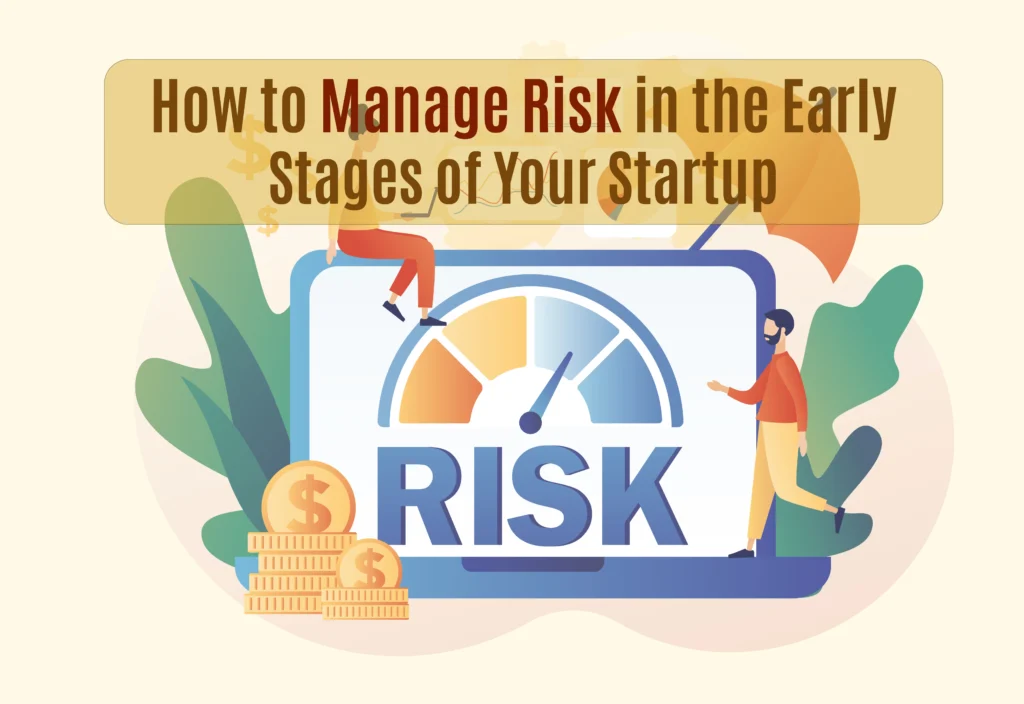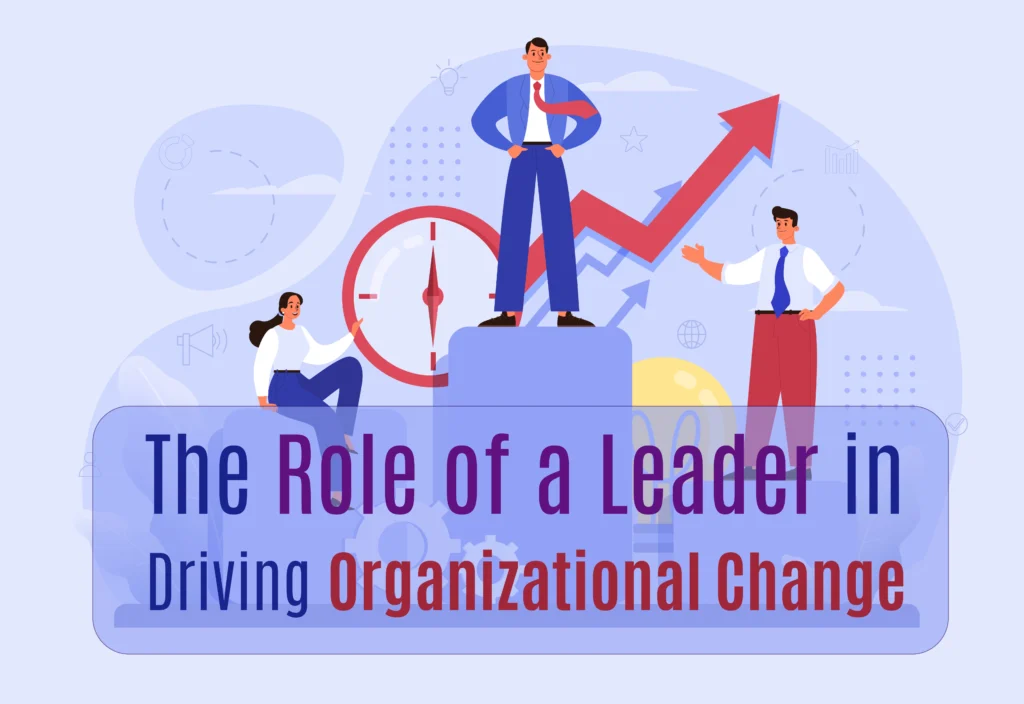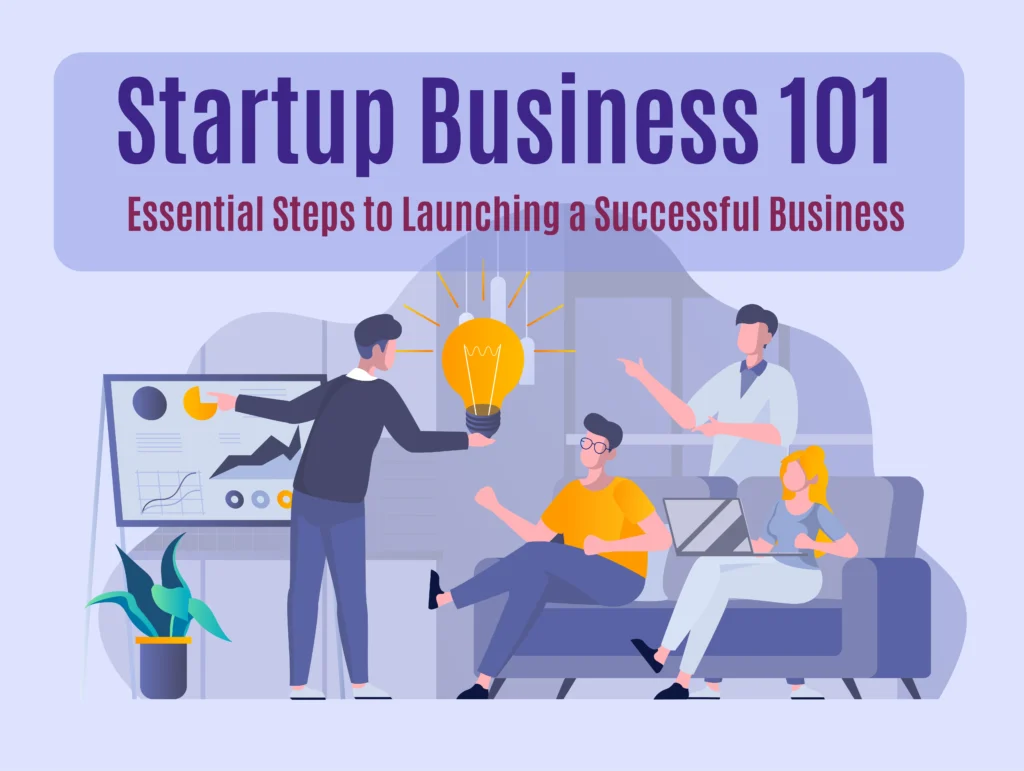10 Essential Startup Mistakes to Avoid in Your First Year
The first year of a startup can be an exhilarating, yet daunting experience. Founders often face a steep learning curve, encountering a range of challenges from product development to financial management. Unfortunately, many startups fall into common traps that can lead to failure. In fact, according to research, around 20% of new businesses fail during their first year.
While failure is part of the entrepreneurial journey, avoiding key mistakes can significantly improve your startup’s chances of success. This article will guide you through the ten essential mistakes that startups make in their first year, providing insights on how to avoid them. By learning from the missteps of others, you can navigate the pitfalls and position your startup for sustainable growth.

The Importance of Avoiding Common Startup Mistakes
Launching a startup is an exciting but risky endeavor. One of the most significant factors that separate successful startups from those that fail is the ability to avoid common mistakes. Startups, especially in their first year, have limited resources—time, money, and people—and cannot afford to waste any of them on avoidable errors.
Why Startups Fail
Understanding why startups fail is the first step in preventing failure. According to multiple studies, some of the most common reasons include:
- Lack of market need: Many startups create products or services that don’t solve a real problem.
- Running out of cash: Poor financial management can lead to early insolvency.
- Weak team: Hiring the wrong people or not having the necessary talent can cripple progress.
- Competition: Startups that underestimate their competitors often struggle to survive.
Impact of Early Mistakes on Long-Term Success
Mistakes made in the early stages can have a ripple effect on your startup’s long-term viability. Missteps in financial planning, hiring, or product development can lead to a weakened foundation that is difficult to recover from. Early mistakes often compound, creating larger problems that drain resources and derail growth.
To succeed, startups must focus on building a solid foundation by avoiding these common pitfalls.
10 Essential Startup Mistakes to Avoid
Mistake #1: Failing to Define a Clear Vision and Mission
A clear vision and mission are the cornerstones of any successful startup. Your vision defines what you want your company to achieve in the long run, while your mission outlines how you will achieve it. Without these guiding principles, your startup can lose direction and struggle to stay focused.
Aligning Team and Strategy with Mission
When your team is aligned with a well-defined mission, they work more cohesively toward shared goals. A lack of clarity in the mission leads to confusion, inconsistent decision-making, and ultimately, wasted resources. It’s essential to communicate your mission clearly to your team and ensure that every strategic decision aligns with this mission.
Mistake #2: Ignoring Market Research
Many startups make the mistake of developing products or services based on assumptions rather than data. Failing to conduct thorough market research can lead to a product that does not meet the needs of your target customers.
Understanding Customer Needs
Effective market research involves understanding your customer’s pain points, desires, and behavior. By gathering this information early on, you can develop a product that solves a real problem and offers value to your customers. Skipping this step can lead to building a product that no one wants to buy.
Overestimating Market Size
Another common mistake is overestimating the size of your market. Founders may assume that their product appeals to a broad audience without confirming actual demand. This can result in over-investing in product development or marketing, only to find out that the target market is much smaller than anticipated.
Mistake #3: Hiring the Wrong People
Your team is your startup’s most valuable asset. However, many startups rush the hiring process, often bringing on people who lack the necessary skills or don’t align with the company culture. This can lead to costly mistakes, as bad hires can derail productivity and negatively impact team morale.
Why Cultural Fit is Crucial
In the fast-paced startup environment, cultural fit is just as important as technical skills. Startups thrive when everyone on the team shares the same values and work ethic. When you hire someone who doesn’t fit, they may struggle to adapt, creating friction within the team. It’s important to prioritize both skills and cultural alignment when hiring, even if it takes more time to find the right candidates.
Rushing the Hiring Process
Rushing through interviews to quickly fill positions often leads to poor hires. Take the time to thoroughly vet candidates, check references, and ensure that they are not only qualified but also excited about your mission.
Mistake #4: Neglecting Financial Planning
Startups often operate on limited budgets, making financial planning critical to survival. However, many founders neglect this aspect, focusing on growth at the expense of cash flow management. This can lead to running out of money long before the company achieves profitability.
Tracking Cash Flow and Expenses
One of the most important aspects of financial planning is maintaining a clear understanding of your cash flow. Founders should have a detailed budget that tracks all expenses and anticipates future costs. Startups that fail to track their finances risk depleting their resources and being unable to cover critical expenses, such as payroll or operational costs.
Budgeting for Unexpected Costs
Startups are notorious for facing unexpected challenges, and it’s crucial to budget for these surprises. Whether it’s a sudden increase in marketing costs or an unexpected legal fee, having a financial buffer can prevent your business from being caught off guard.
Mistake #5: Poor Product-Market Fit
One of the primary reasons startups fail is a lack of product-market fit. If your product doesn’t meet a real need in the market, no amount of marketing or sales effort will make it successful.
Identifying and Adjusting to Market Demand
Achieving product-market fit requires ongoing testing and validation. Startups must continually collect feedback from users and be willing to pivot their product to better align with customer needs. If your product is not resonating with your audience, it’s important to adjust quickly to avoid wasting resources on a misaligned offering.
Consequences of Forcing a Product on the Market
Forcing a product into the market without validating demand can be disastrous. It often results in poor sales, negative customer feedback, and ultimately, the failure of the business. Be sure to test and validate your product with real customers before fully committing to your business model.
Mistake #6: Underestimating Competition
Many startup founders assume their product is so unique that they have no real competition. This overconfidence can be dangerous, as it blinds founders to the actions of other companies in their space.
What You Can Learn from Competitors
Even if your idea is innovative, competitors may still be targeting the same customer base. Studying your competition allows you to learn from their mistakes, understand their strengths, and identify gaps in the market. By staying aware of what others are doing, you can adapt your strategy and stay ahead of the curve.
Overconfidence in a ‘Unique’ Idea
Believing that your startup is “too unique” can lead to complacency. Every market has competition, whether direct or indirect, and underestimating it can cause your business to fall behind. Embrace a healthy awareness of your competitors and use it to refine your product and strategy.
Mistake #7: Focusing Too Much on Growth Too Soon
Every startup dreams of rapid growth, but scaling too quickly can be a recipe for disaster. Premature growth often leads to inefficiencies, as your business may not have the infrastructure to support the additional workload.
Premature Scaling Risks
When startups grow too fast, they often face operational challenges, such as inadequate staff, overwhelmed systems, and unsustainable cash burn rates. This can cause service quality to decline, leading to customer dissatisfaction and damaging your brand reputation.
Balancing Growth and Stability
It’s essential to balance your desire for growth with the need for stability. Rather than rushing to scale, focus on perfecting your product and processes. This will ensure that when you do scale, you can maintain high-quality service and avoid burning through your resources.
Mistake #8: Not Prioritizing Customer Feedback
Customer feedback is one of the most valuable tools for a startup, yet many companies fail to prioritize it. Ignoring feedback can prevent you from identifying issues with your product and hinder your ability to improve.
Building Feedback Loops
Creating structured feedback loops is critical for collecting insights from your customers. By regularly soliciting feedback, analyzing responses, and incorporating improvements, you can continuously refine your product to better meet market needs.
Turning Criticism into Opportunities
While positive feedback is helpful, negative feedback is where the real learning happens. Don’t ignore criticism—use it as an opportunity to understand your product’s weaknesses and make improvements. Customers who feel heard are more likely to stay loyal to your brand, even if they initially had concerns.
Mistake #9: Ineffective Marketing Strategies
Marketing is essential for getting your product in front of the right audience, but many startups fall into the trap of ineffective marketing strategies. This can include over-relying on a single marketing channel or failing to measure the return on investment (ROI) of your campaigns.
Diversifying Your Marketing Channels
Relying too heavily on one marketing channel, such as social media or paid ads, limits your reach and puts your business at risk if that channel underperforms. It’s essential to diversify your marketing efforts across multiple platforms, including content marketing, email marketing, and search engine optimization (SEO).
Measuring the ROI of Marketing Campaigns
A common mistake is pouring money into marketing without tracking the results. Understanding the ROI of each campaign allows you to optimize your budget and focus on the strategies that are delivering the best results.
Mistake #10: Lack of Adaptability
Startups operate in dynamic markets, and the ability to adapt to changing circumstances is crucial for long-term success. Founders who are too rigid in their strategies often struggle to survive in evolving environments.
How to Stay Agile and Pivot
Being adaptable means staying open to new ideas and being willing to pivot when necessary. Startups that are quick to recognize when a product isn’t working or when the market has shifted are more likely to succeed. Flexibility allows you to make necessary adjustments to your business model and stay relevant.
Embracing Failure as Part of Growth
Failure is an inevitable part of the startup journey. Instead of fearing failure, embrace it as an opportunity to learn and improve. The key is to fail fast, learn quickly, and pivot effectively to avoid repeating mistakes.
≫ Related Post: How to Secure Funding for Your Startup
Strategies for Overcoming Startup Challenges
Learning from Setbacks
Every startup will face setbacks, but how you handle them is what sets successful companies apart. Resilience is key—acknowledging mistakes, learning from them, and moving forward with a refined strategy.
Building a Network of Mentors and Advisors
One of the most valuable resources for any startup founder is a network of mentors and advisors. Learning from those who have been through the startup journey can help you avoid mistakes and navigate challenges. Mentors can provide guidance, offer alternative perspectives, and help you stay focused on your long-term vision.
Maintaining Flexibility in Strategy and Execution
As the market evolves, so should your strategy. Startups that remain flexible are better equipped to handle unforeseen challenges and seize new opportunities. By regularly assessing your business model and making adjustments as needed, you ensure that your startup remains agile and competitive.
Conclusion
Starting a business is no easy feat, and the first year can be particularly challenging. However, by avoiding these common mistakes—such as neglecting financial planning, ignoring market research, and underestimating competition—you can improve your startup’s chances of success.
Building a strong foundation, staying adaptable, and continuously learning from both your successes and failures will help you navigate the turbulent early stages of your startup. Remember, every entrepreneur makes mistakes, but how you learn from them and adapt will define the future of your business.
















